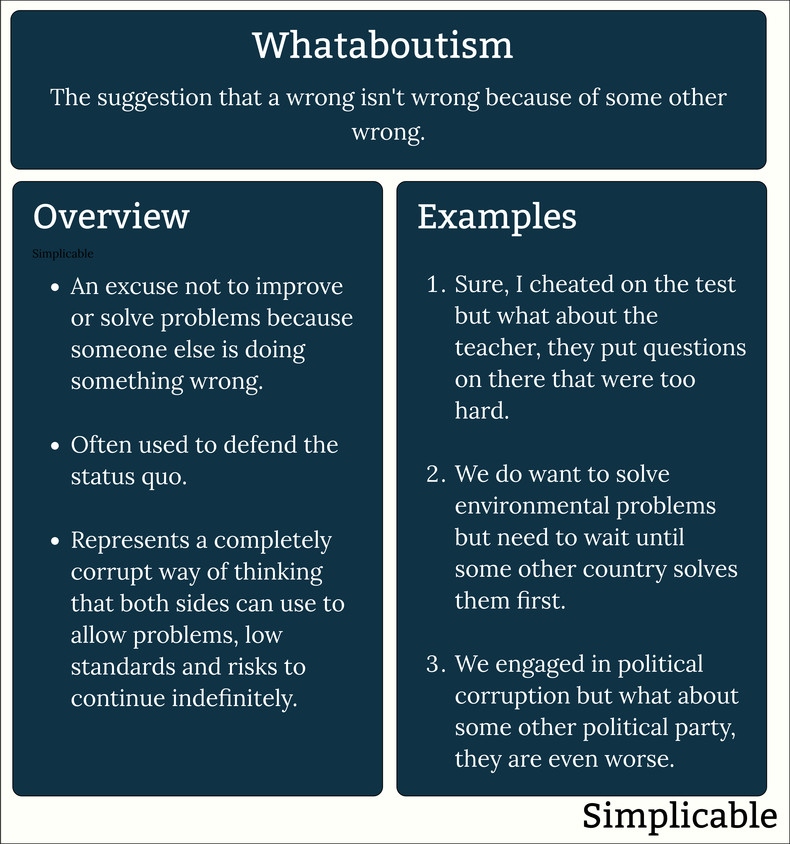
Financial
An employee is overcharging her employer for overtime. When confronted, she says "what about them ... they avoid taxes by using tax havens ... that's worse than what I'm doing."Human Rights
A nation deflects criticism of its recent human rights violations by pointing to the history of slavery in the United States.Performance
A hockey coach criticizes an offensive player's performance and the player says "what about the goalie ... he let in some easy shots."Politics
A politician is accused of lying and she deflects criticism by giving an example of a political foe who was also caught lying.Family
A father asks his daughter about her bad grades in an University program and she says "what about you ... you never even went to University."Disaster
Someone expresses sympathy for disaster victims and is criticized on the basis that other people are also suffering in some other way.Risk
An analyst asks a CEO about a firm's excessively high debt levels. The CEO deflects the question by pointing to a weaker competitor that has even higher debt levels.Status Quo
Whataboutism is often used to defend the status quo by suggesting there is no point solving one problem when other problems exist. For example, the argument that environmental regulations are pointless because some other country is polluting the environment.Whataboutism vs Double Standard
A double standard is the unfair application of different sets of rules for different situations. For example, if it was okay for all politicians to lie than accusing a politician of lying would be a double standard. This is very different from a whataboutism that suggests that a wrong can't be wrong because of some other wrong.Why Whataboutism is a Fallacy
Whataboutism suggests that two wrongs make a right. If we accept whataboutism arguments, then nothing can be deemed wrong, as long as we can think of examples of things that are worse.Summary
Whataboutism is a completely corrupt way of thinking whereby you justify doing something wrong because of some other supposed wrong.
| Overview: Whataboutism | ||
Type | ||
Definition (1) | An argument that a wrong isn't wrong because of some other wrong. | |
Definition (2) | The suggestion that it is hypocrisy to criticise a wrong without first criticising another wrong. | |
Typical Use | Propaganda Deflecting criticism Defending the status quo | |
Also Known As | Whataboutery | |
Related Concepts | ||




























